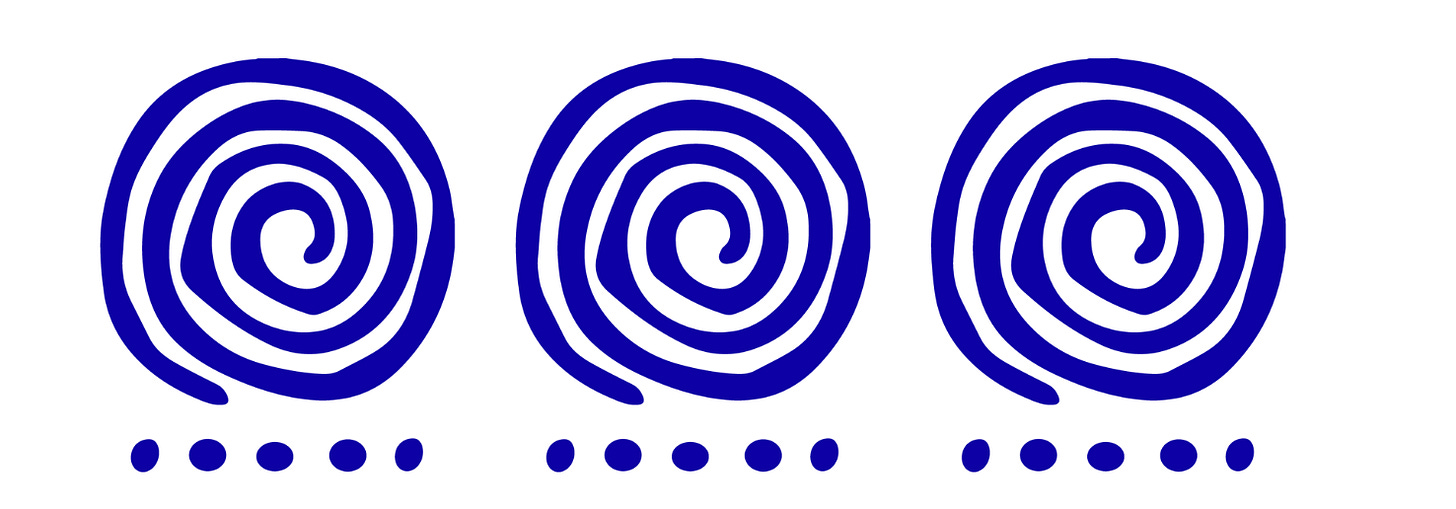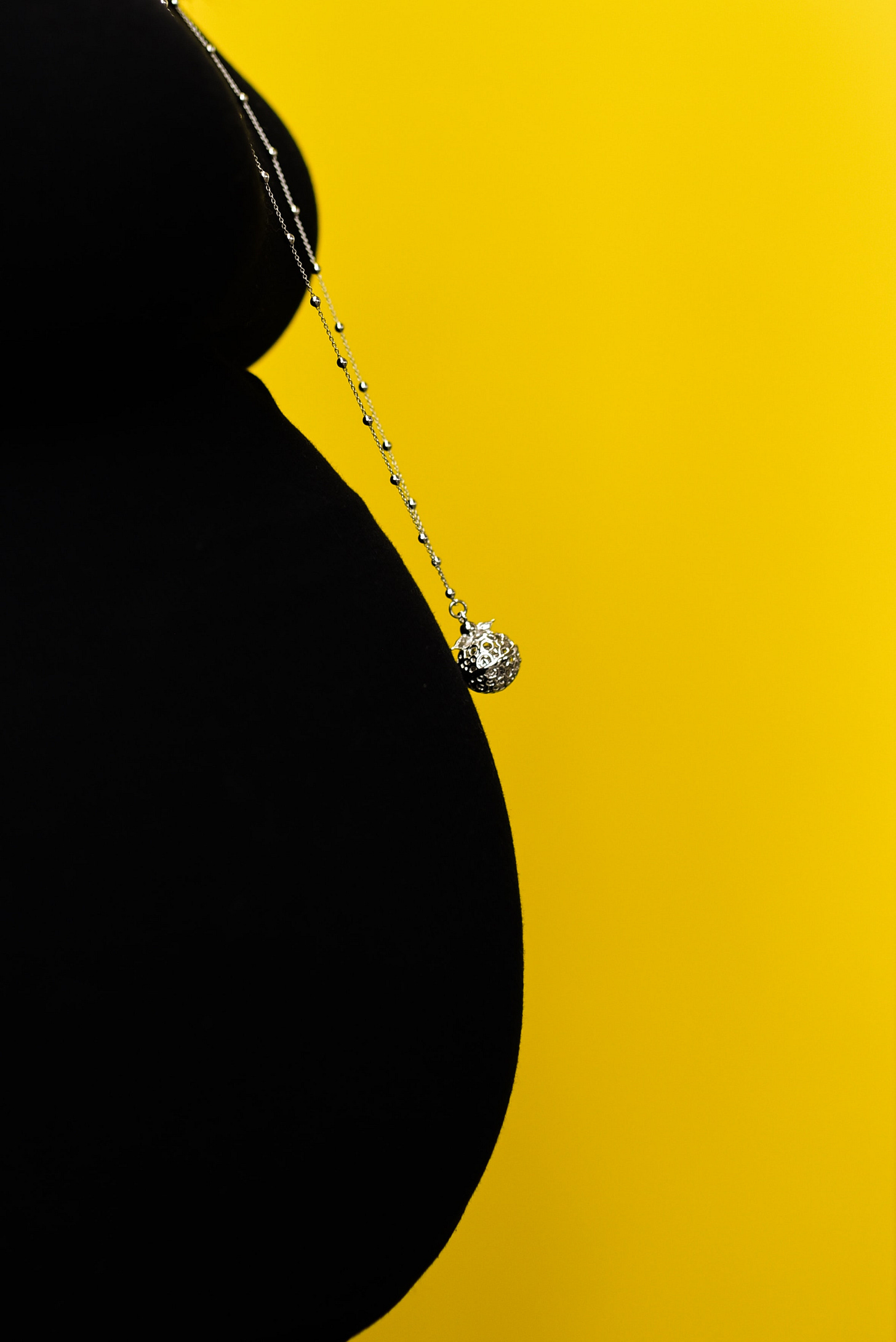It felt like a train was hurling towards all of us and we could not move out of the way, mesmerized knowing what would happen. We knew it was coming. We all knew about the leak of the SCOTUS decision overturning Roe v. Wade. It was coming. We knew.
Still, it hit like a freight train.
I tried to ignore it. I immediately clung to the low hanging fruit of thought, "Well, Thank God I am past childbearing age so it will not impact me personally."
The hollow echo of that betrayal of all womanhood haunted me as knots formed in my stomach over the next few days. Memories. Lump in throat. Hollowness. Invisible tears.
It took time to write this one, y'all. It certainly hit "below the belt." It also does not feel complete. It is a work in progress. And it will be published in multiple parts so look out for the other parts.
Circa 2004 @ The Hospital
My head swirled as warm tears trickled down my cheeks. I was not trying to cry, yet I did not even know I was crying.
I remember. Between my thumb and forefinger, I was rubbing the white corded canvas tie attached to the standard blue patterned hospital gown, probably trying to ground or distract myself. I was looking forward to the haze of the anesthesia as it meant I could finally sleep and shut down my brain and my thoughts, even if it was just for a few minutes. I had not had any restful sleep in very many days. The pre-anesthesia in the drip helped ease some of the heartache I was feeling. I do love a good anesthesia!
The only reason I remember the tears is this imprinted memory of me wiping my tears away and saying, "Don't you see that this is not what I want?" I was in the pre-op at the hospital to have an abortion, a termination of pregnancy.
I must have been in my 14th or 15th week. We looked forward to the bi-monthly doctor visits to hear the heartbeat in my belly. Prior to this day, we had gone for a checkup, and my Ob/Gyn did his check and said, "No. No. No. Come on! Let me hear your heartbeat. Please!" I remember the redness seeping into his face as he turned to look at me with a sigh. If the fetus had not died, the immediate crash of my heart certainly did it.
Finally, after tests and ultrasounds that I do not remember, he announced his prognosis that he could not hear the fetal heartbeat and that most likely meant I had a miscarriage. He sent me home and told me I would probably start bleeding in a couple of days and that would be the expulsion of the fetus from my body.
After no bleeding, and lots of emotional agony as this was the 2nd pregnancy I would be losing, I went back in to see him, daringly hopeful. The pregnancy hormones still had me feeling pregnant. I was puffy and nauseous. I threw up a lot even though I was past my first trimester and my stomach was getting hard and more rounded. I could tell. My tender breasts ached all day and my face had a shine on it as if I were I glowing light bulb.
Still no heartbeat. Painfully, we scheduled a termination of the pregnancy at the hospital as my doctor informed me that I could get sick very quickly if I did not remove the fetal tissue. I was in denial, convinced he was wrong since I still felt pregnant.
Back to the Hospital Room:
A few days after this doctor visit, now in the pre-op area, I was crying tears that I did not feel, and holding on to dear life with the cords of the hospital robe.
An orderly, a young, physically small, Black woman came in and started cleaning the room, or organizing it or something. I could smell the slight antiseptic odor in the room. I could barely hear her humming under her breath. I knew she was in the room, but my mind was far, far away in the land of pain, disappointment, and fear. She appeared to be fiddling with something near the headboard and so I turned to look at her as she was close to me physically. She looked at me with big eyes that conveyed such sorrow and sadness.
She leaned in and was probably two or three inches from my face, and whispered close to my ear, "You don't have to do this. It is a sin. God is not pleased. Please don't do this."
I pulled back and looked at her incredulously, "The doctor said the baby is dead! I must do this. I am getting sick. I don't have a choice." I looked at this little human and today, I think of her as an imp. In my Yoruba language, I would call her an "iwin," a little leprechaun-like imp or ghost that roams the forest floor restlessly, creating havoc and mayhem.
"God can resurrect that baby in your belly. God can bring that baby back to life. Would you like me to pray with you? You can have this baby," she said with more excitement in her voice. "That is just an innocent little baby. You don't want to murder the baby, right?"
I said, "Honey, all I have done is prayed and here I am. I don't have the strength for this." I felt defensive. I knew God too! Yet, I was afraid to close out the conversation with "Go away," as I was afraid that she might be right.
This was when I wiped away the tears, slightly surprised that I was crying as I was previously unaware of the tears, and softly said, "Don't you see that this is not what I want?"
Emptiness and silence filled the room as we looked at each other and I laid my head back, the tears and running down my cheeks and neck, making small splatters the blue hospital robe.
What if she was right? What if the doctor was wrong? What if this was me being a wimp? What if this was because I did not have enough faith?
Was this my punishment?
The Context
I had been diagnosed with endometriosis a few years earlier and I kept postponing the surgery to fix it because "I was too busy." I discovered I was pregnant one day when I went to the bathroom to just pee and I passed out - from pain. I was in so much agony and discomfort, the doctor told me that if I really wanted to have this baby, they could make me more comfortable, but I would have had to be on bedrest for the next seven months or so until if and when the baby came. The pain could be decreased but it would never quite go away, and I would have to learn to manage it.
My doctor was very concerned about my level of pain and told me I might lose the baby anyway because of the endometriosis. I was in so much discomfort, my priority was to stop the pain. He classified it as a dangerous pregnancy to me with unlikely viability of the fetus. I clung to that statement as I just could not imagine going through 8 to 9 more months of the pain and discomfort.
We terminated that pregnancy, and I later had the endometriosis surgery where the surgeon found that my bladder was wrapped around my right ovary. He explained that was why I was in so much pain during that pregnancy and said he was glad that I terminated it as keeping the pregnancy would have been a disaster.
When I met the imp at the hospital, I was having a second intentional termination of a pregnancy. I felt shame that I terminated the first one and now, this one was dead. Surely, it was my fault. I did something wrong the first time and I was being punished for my wrongdoing the first time.
After this, I had two more spontaneous miscarriages and never birthed children of my own.
Today, in the State of Georgia where I live, I could not have either lifesaving procedure. I would most likely be dead if I did not have both procedures.
Dear Beloved Reader,
Please know that I am truly fine. I have no regrets. This is an old story with zero "charge" for me today, other than what is going on in the larger social context. Please do not feel sorry for me and in the comments, do NOT say things like, "I am so sorry you went through that." I am not looking for pity. I am just fine! I promise. . (Read about how wisdom from Yoruba culture helped me heal here.)
What happened to me is not uncommon. As much as my personal details about it are agonizing, it is the story of not just me, but many women. I really do not need to tell you this story. You know these details already as you have heard them repeated over and over in various contexts.
Yet, I memorialize this incident because that imp was an embodiment of the oppression of our warped culture around the issue of abortion.
When we walk around with a sense of entitlement,
dropping our wrong theologies on vulnerable people in their most defenseless states,
making policies that do not honor the personhood of 51.1% of the population,
and taking away basic human rights to medical attention,
it is the domination and enforcement of one’s values over the lives of others.
This is about power and not care.
Therefore, we tell these stories to establish our humanity and the need to have bodily autonomy and shift the narrative about how society values our bodies as women.
There is power in our stories.
What are your stories? Which stories have you heard? How have stories helped you understand other folks lived experiences? Where did you find power in my story? Or the lack thereof?
Do comment, share and subscribe! Thank you.





